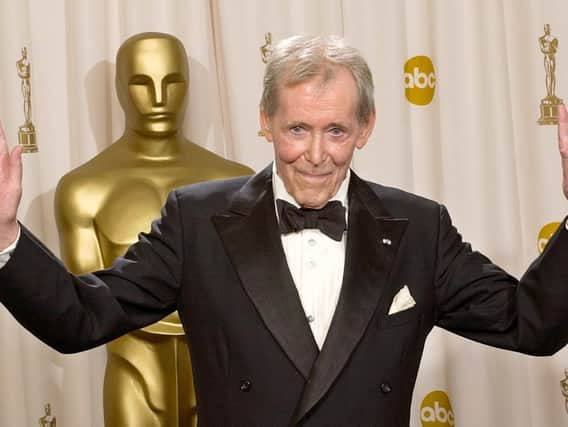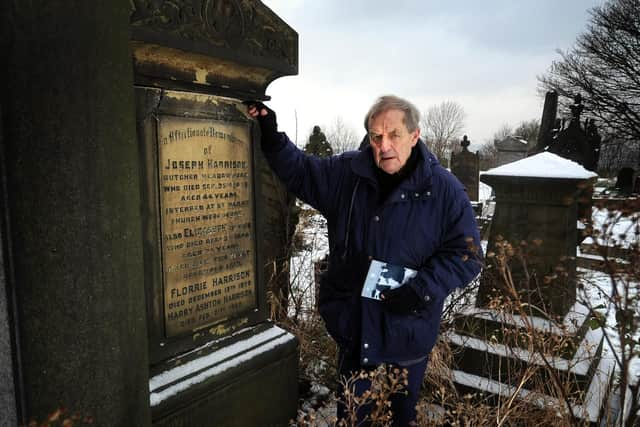Why Peter O'Toole and Tony Harrison are an inspiration: Anthony Clavane


Absolutely. It is less than fabulous for such luminaries to be erased from our cultural memory.
It was interesting that, out of all the luminaries she could have mentioned, she chose O’Toole. For this very morning, at a library in south Leeds, I will be discussing his friendship with fellow Loiner Keith Waterhouse.


Advertisement
Hide AdAdvertisement
Hide AdA blue plaque will be unveiled in Waterhouse’s honour by Leeds Civic Trust. Like the Billy Liar writer, O’Toole grew up in post-war Leeds.
Not a lot of people know this. In fact, most people remember O’Toole as a badly-behaved posho with Irish roots. They see him as part of an extraordinary generation who drank to excess and brawled their way through some of the wildest exploits Hollywood has ever seen. You know who I mean: Oliver Reed, Richard Burton, Richard Harris et al.
I prefer to see him as part of an extraordinary generation of angry young Loiners who barged their way through the privileged ranks of the elite during a golden age of social mobility. You know who I mean? Waterhouse, Tony Harrison, Willis Hall, Kenneth Haigh, Malcolm McDowell et al.
Propelled by scholarships to grammar schools, traineeships on local papers and places at art colleges, this generation reaped the benefits of an upwardly mobile society. As Alan Bennett, who was educated at a Leeds state school, put it: “We were the interlopers. These (public school) slobs, as they seemed to me, the party in possession.”
Advertisement
Hide AdAdvertisement
Hide AdHarrison, who was born and brought up in Beeston, has always felt himself to be an interloper. His best poems reflect his alienation from an establishment which came to covet him. This month, Tyneside cinema is hosting a retrospective of his film verses and, to mark this, a small group of MPs submitted an Early Day Motion recognising that the “Leeds-born poet…not only made poetry his job but became one of the greatest poets in history… throughout his life he has always written, and spoken, for the people.”
When Spitting Image announced its return to the small screen a few days ago, a famous sketch from the 1980s resurfaced on social media. In it, Reed receives a call from his partner in drink as they discuss the previous night’s drunken revelries. “I’m a bloody woman Oliver,” cries the still-inebriated O’Toole. “Me didgeridoo’s been turned inside out!”
But Peter was not a washed-out posho. Far from it.
He rose from humble beginnings to see his name in lights, acquiring his upper-middle-class, southern tones after winning a scholarship to study at RADA. At the prestigious acting school he was in the same year as those other super-talented working-class trailblazers Albert Finney, Richard Harris and Alan Bates.
He soon established his brilliance as a performer both on stage and screen, winning the 1959 best actor of the year award in Hall’s The Long And The Short And The Tall.
Advertisement
Hide AdAdvertisement
Hide AdHis performance in David Lean’s epic 1961 film Lawrence of Arabia was described by Sam Spiegel as “unequalled in modern cinema”. Time magazine put him on the front cover and called him “Lawrence of Leeds”.
Towards the end of his life he linked up again with Waterhouse – their dads had been drinking partners in Hunslet – to play the lead role in Jeffrey Bernard Is Unwell.
In one of his obituaries, he was described as “blatantly Irish”. But records from the Leeds General Registry Office confirm that Peter J (James) O’Toole was born in the city in 1932. He followed in Waterhouse’s footsteps, becoming a trainee journalist at the Yorkshire Evening Post.
Like Lumley, I too am shocked. We should remember the past giants of literature, theatre, television and the cinema as great stars.
But we should also remember how they came to be such great stars. Sadly, O’Toole tends to be remembered more for his hell-raising than his trailblazing.
